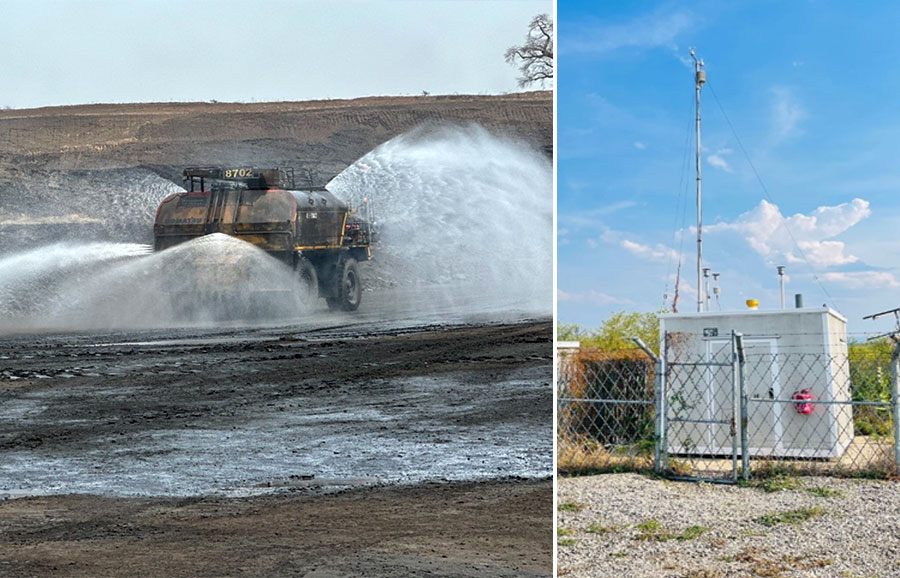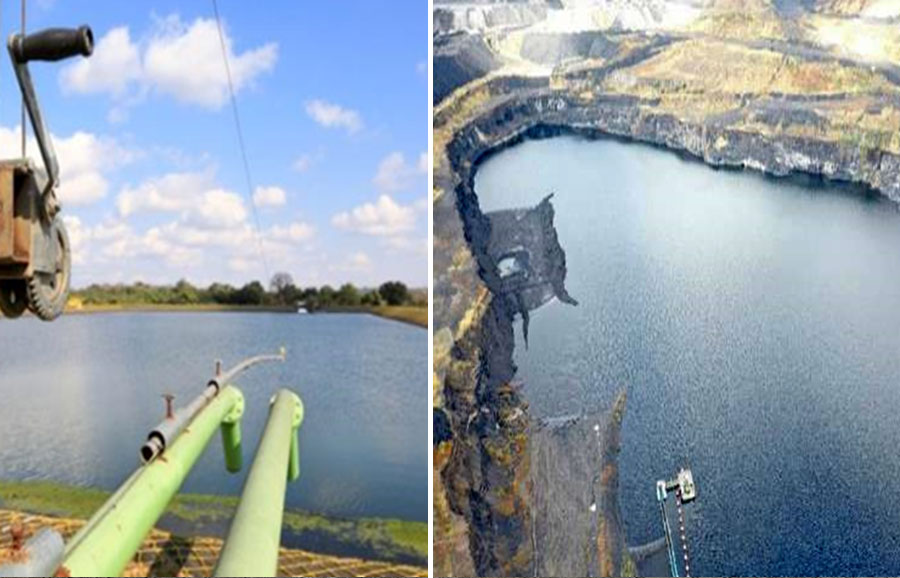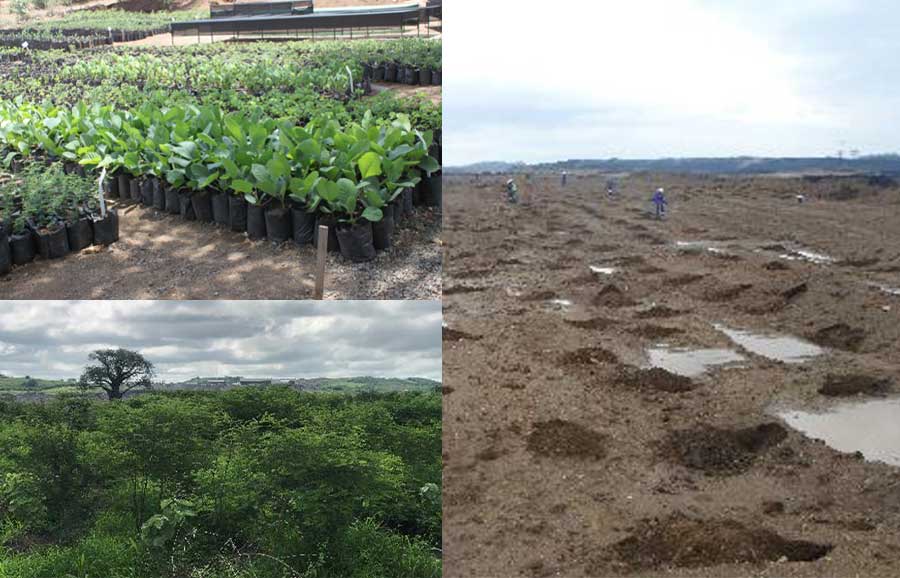Vulcan’s sustainability philosophy considers the balance between environmental, social and economic aspects.
In the Moatize industrial complex, there are 14 environmental management programs that reflect our commitment to the rules and standards of good environmental management, of which we can highlight:
- Management and monitoring of air quality and weather conditions;
- Management and monitoring of noise and vibration;
- Management and monitoring of water quality and effluents;
- Recovery of degraded areas and management of the biotic environment ( fauna and flora)
- Solid waste management;
- Environmental training and education program.
Vulcan reuse
Our commitment goes beyond business operations, as we also seek to give back to the communities in which we operate. Through our initiative, we aim to support government institutions, orphanages, and other groups in vulnerable conditions by donating materials that are in good condition for their reuse.
We believe in making a meaningful difference and contributing to the well-being of those in need, as part of our overall mission to be a responsible and socially conscious corporate citizen.

Management of air quality and atmospheric emissions
As part of controlling the emission level of pollutants from the open pit mining process, among other stages of coal processing, as well as complying with current legislation, Vulcan has an atmospheric emissions mitigation control system, composed of water trucks 85,000-liter tank for sprinkler on mine roads and fixed sprinkler systems on the coal piles and the wagon sprinkler system.
It also has an automated air quality monitoring network, the only one in Mozambique, certified by European Union and US-EPA (U.S. Environmental Protection Agency) standards. such as particles (PTS, PM10, PM2.5) gases SO2, NOx, CO, O3 and weather conditions.
Noise and Vibration Management Program
In addition to preventive equipment maintenance, noise monitoring, and vibration monitoring, Vulcan also prioritizes environmental sustainability in its mining operations. Through careful planning and implementation of best practices, Vulcan strives to minimize the negative effects of mining on the local ecosystem.
We currently expand the mitigation measures including new measures:
- Mapping of the main sound sources of the development;
- Use of electronic fuses;
- Plugging of holes;
- Creation of free area and detonation direction;
- Limitation of the mass volume of material to detonate;
- Carrying out detonations only during the daytime, creation of warning systems and communication to communities about the times of detonations, as well as continuous monitoring of noise and vibration levels.

Regular monitoring and assessment of noise levels and seismic vibrations, as well as taking corrective measures to reduce any potential impacts. By proactively managing these environmental factors, Vulcan aims to ensure responsible mining practices that prioritize environmental protection and sustainability.

Domestic effluents are treated in the respective Plants and treated effluent is used for dust control, together with stormwater. During the washing of mining equipment in the wash bays, the generated effluents are treated in the Oil/Water Separating Plants, and treated effluent used to wash other equipment.
The quality of all the treated water and effluents is controlled through accredited Laboratories in order to ensure compliance to the applicable legal requirements.
Water Resources Management Program
Water resources are an indispensable part of our operational process.
The Vulcan Water Resources Management Program integrates the management of the water cycle in the enterprise, starting from abstraction, supply, storage, treatment, distribution, and use of both industrial and potable water that is reused and recirculated.
This management also includes the treatment and destination of industrial and sanitary liquid effluents. These measures, in addition to contributing to legal compliance, aim to optimize its water consumption in operations.
The water recirculation and reutilization system of the Mine is closed. This is meant to ensure the reduction in the abstraction of new water from the aquifer.
The coal Processing Plants demand the highest volumes of the water abstracted for the operations. Therefore, all the water that is fed into the plants return to the Tailings dam, for subsequent recovery and feed back into the process.
Stormwater runoff is recovered and stored in specific sumps in the Mine for later use in the dust suppression process through the water bowsers and mist cannons in the access roads, sprinkling systems in the stock yards.
Environmental Recovery and Biodiversity Management
Flora and Fauna are a concern for the company, in this sense Vulcan has the Biotic Environment Management Program where actions and activities are carried out to mitigate and control the impacts on the biotic environment, and in this they include the chasing away of animals in particular for the most vulnerable and difficult to move around, systematic collection of the largest possible number of seeds from the areas to be mined, monitoring of periphytic algae and aquatic macrophytes, among others.
Despite this, Vulcan has a robust environmental recovery plan that includes a nursery with a production capacity of around 60,000 seedlings per year, with the aim of recovering the mined areas and restoring the natural ecosystems, thus restoring the natural landscape in the medium and long term. term. It should be noted that in addition to native species, fruit trees and shade trees are produced for educational institutions, government and civil society that operate in the cities of Moatize and Tete for urban afforestation.


Waste Management Program
The Waste Management Program (WMP) is of fundamental importance for the maintenance of environmental quality in the region where the Moatize Coal Mine (MCM) and associated infrastructure is located, since it establishes the conditions required for the segregation, operational control, temporary storage, transportation and final disposal of waste generated in the production processes and auxiliary sectors. In this case this program aims to minimize waste production, Meet the requirements of the applicable environmental legislation, Minimize the costs associated with waste management, Adopt procedures that minimize the risks of environmental degradation and the consequent formation of environmental liabilities, Raise awareness of the company’s employees for the correct management and disposal of waste.
It is important that segregation is done correctly because it helps in reducing cost as well as generating environmental impacts, in addition to these points it aims to ensure the following:
- Reduce the use of natural resources;
- Reduce waste disposal on the ground;
- Allow reuse and recycling of waste;
- Create job opportunities.
- Increase the useful life of the landfill.

Environmental Education Program
Environmental education is understood as the processes by which the individual and collectivity build social values, knowledge, skills, attitudes and competences towards environmental conservation, an asset for common use of the people, essential to a healthy quality of life and its sustainability. At Vulcan this program aims to : Continue to raise awareness, educate and empower the community and company employees about the need to preserve the environment and change behavior.Maintain the strengthening of social capital and co-responsible and integrated development serving as a management tool to achieve social responsibility, economic development and environmental conservation;
- Continue to support environmental preservation, fostering awareness and participatory action from confronting problems within communities; and
- Expand the recognition of procedures for critical actions through environmentally correct actions and postures (inside and outside the company) that stimulate the exercise of citizenship through the participation of integrated actions. With this the company has carried out some reuse projects, that is, transforming “garbage” into objects of use for the company and the communities.








